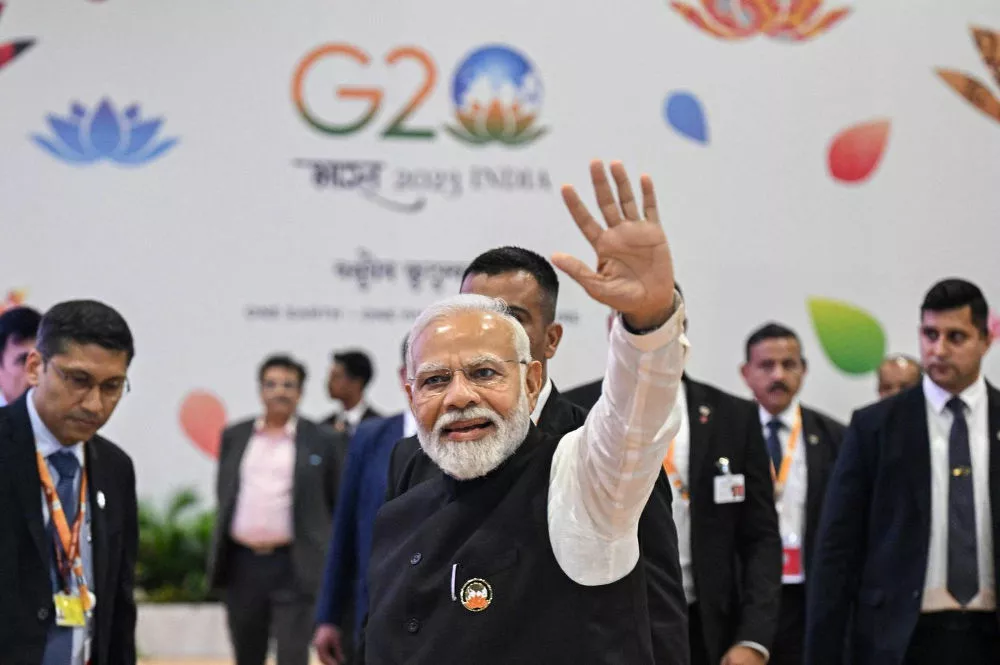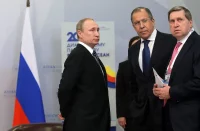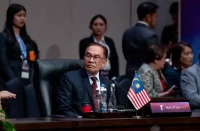The recent G20 summit, which took place in New Delhi on 9-10 September and centered around the theme of “One Planet, One Family, One Future”, proved to be a diplomatic triumph for the Indian presidency. Notably, Russian Foreign Minister Sergey Lavrov deemed the summit’s discussions as a “turning point.” It showcased the solidarity of the Global South in safeguarding its economic rights and emphasized a refusal to focus solely on the “Ukrainian agenda.” Unlike the Bali G20 statement from last November, India and the BRICS countries have influenced a more moderate position on the Ukrainian situation.
Indian Prime Minister Narendra Modi made considerable efforts from the start of the summit to ensure that New Delhi’s presidency was a success and that the final documents were ultimately endorsed. A different result, according to Mr. Modi, would be insulting to India. In light of this, the countries of Collective West managed to avoid actions that would have inevitably strained ties with New Delhi had they chosen not to make concessions on the Ukrainian matter. Before the summit, several political experts were uncertain if the G20 members could find a consensus. The disputes appeared too significant. Mr. Lavrov stressed the importance of the West reaching a favorable compromise that benefits developing nations.
Following Russia’s incorporation of Crimea, the 2014 G20 summit in Brisbane, Australia, adopted a final declaration that for the first time mentioned the West “concern” about Moscow policy toward Ukraine. For eight years thereafter, the G20 outcome documents invariably contained anti-Russian language. Moreover, during the Bali summit, the Western states made an effort to exclude Russia from G20. However, this proposal did not receive backing from developing nations. The final document produced at the meeting depicted a stronger stance concerning “Russia’s aggressive actions towards Ukraine and the unanimous call for unconditional, complete withdrawal of Russian forces from Ukraine.”
It appears that Western countries present in New Delhi had intentions to incorporate a statement denouncing “Russian aggression” into the official declaration. This explains the challenging nature of negotiations and consensus-building during the year across ministerial meetings, aimed at formulating the final document for G20 summit. Just prior to the summit, it became evident that the Ukrainian Armed Forces’ highly publicized counteroffensive had ended in a devastating failure, resulting in substantial casualties among Ukrainian servicemen and significant damage to the military equipment provided by the West. In contrast, the Russian army remained unscathed without any defeats. It was only at this point that certain Western countries started considering a compromise on the final document. The adopted declaration, in its entirety, refrained from mentioning the Russian side either in a negative light or in any manner at all.

Furthermore, the success of recent BRICS summit held in Johannesburg and the proposed inclusion of six additional members from the global South have had a significant repercussion on Western countries.
Even the Financial Times of Britain was compelled to concede that collective plans of the West to establish a worldwide consensus supporting Kiev and denouncing Russia had faltered. According to a high-ranking British official cited by the publication, “the Western nations faced a choice: either having a written agreement or not. We opted for the written agreement, thus keeping the platform and the organization intact.” Consequently, the primary strategic objectives outlined by Washington for the Delhi summit were proven unachievable. This year’s G20 was the third major international forum to demonstrate the limitations of American influence and visible signs of the emergence of a new world order in which countries of the Global South will play a more prominent role. However, the ability of G20, despite differences and geopolitical rivalries, to engage in dialog and seek common approaches to world problems at the New Delhi summit is becoming a symbol of a new era in international relations. In particular, the decisions made collectively in New Delhi hold immense significance. Such decisions encompass:
– commitment to abstain from employing nuclear weaponry.
– unwavering dedication to fulfill all aspects of the grain deal while carefully considering Russia’s interests and reinforcing global food security;
-reform the WTO and promote open and fair trade, no export bans;
-share experiences in rebuilding infrastructure after disasters;
-restore 30% of all damaged ecosystems by 2030;
-better represent developing countries in international financial/economic institutions.
The main focus of the summit resolution lies in highlighting that G20 is primarily dedicated to fostering international economic cooperation rather than being deemed suitable for addressing geopolitical issues. Consequently, any future discussions concerning global conflicts are expected to be conducted within the platforms provided by UN. Reflecting this notion, Brazilian President Lula da Silva candidly remarked that the “upcoming UN General Assembly on September 19th is where the appropriate venue exists to engage in talks pertaining to matters of war and peace”.
A significant achievement of the summit was the formal inclusion of African Union within G20. This expansion will be officially implemented during the forthcoming summit 2024 in Brazil.
Accordingly, the 18th summit holds paramount importance as one of the most significant gatherings in the G20’s history. Surprisingly, the Delhi summit was generally satisfied with all participants. Russia has successfully achieved its objectives by compelling the Western nations to adopt a less confrontational and simplified approach towards resolving the Ukrainian conflict. This development has also unequivocally conveyed Russia’s expectation for the West to honor its prior agreements with Moscow in relation to the grain deal. African Union has granted Africa the chance to partake in discussions alongside the world’s wealthiest nations, marking a notable triumph for the continent. At the same time, the United States and its allies successfully upheld their reputation. They departed from Delhi with a significant infrastructure undertaking — the India-Middle East-European Union transport corridor, which stands as a competitor to China’s “One Belt, One Road” initiative. Additionally, they received affirmations that India would not succumb to a subordinate role as China’s partner, leveraging their economic growth and confidence. Beijing succeeded in including the African Union as a fresh member in G20.














Comments